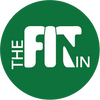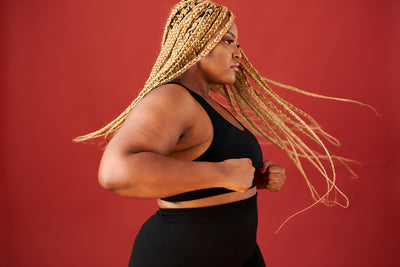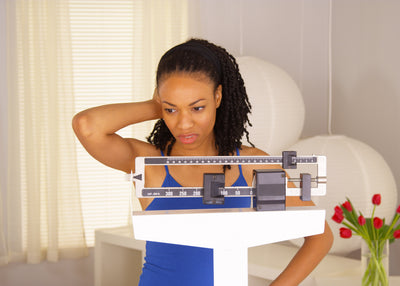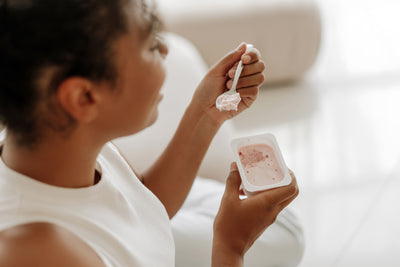At the age of 36 I was diagnosed with early menopause which hit me like a ton of bricks. It’s not something anyone around me or in my immediately family has ever gone through from what I knew. I had so many questions like “why was it happening to me?”, “what did I do to bring this on?” and “what happens next?”.
This came right at a time where I was having the children conversation with my then partner and so it really took a toll on me mentally & emotionally. I felt like I was no longer the women that I’m supposed to be. Seeing everyone around me having children and for my journey to be cut short left me heartbroken regularly but also my body was no longer under my control it seemed. My change in hormones meant my body was not functioning like it used to. All of a sudden it was harder to lose weight and very easy to gain, my cholesterol was creeping up, I was tired, and the hot flashes & night sweats were out of control!
Speaking with my own endocrinologists and gynecologists I didn’t really get an answer to any of my questions other than, it’s rare…but it happens. So, I took it upon myself to research but also document my journey and provide some tips to hopefully help others understand the signs and how to manage.
-
Ask your family. Maternal family history can be very helpful in detecting your own risk of early menopause. It is important to start these conversations early, especially if you have the opportunity to ask your mother when she experienced menopause.
As we are having children later, remember many of our mothers had their children in their twenties. Due to that, menopause wasn’t as much of a hinderance in creating their full family so they aren’t going to think to have that conversation with us. We need to bring it up to them. Especially for Black & Latina women as we go through menopause 2 years earlier than white women. The median age is 51 but for Black & Latina women it is 49.
Furthermore, latest research also shows that Black women are three times more likely to experience early menopause. Why there are those differences is unknown, but as I began to share my story I’ve begun to hear more about it from people in my circle. This makes it even more crucial to speak to your family about their history.
-
Track your period. The randomness of my period was what propelled me to start asking questions. The change in heaviness, change in timing, and the duration were all key signs for me that something was wrong.
There are apps out there like Period Tracker that make it easy to track your period and also predict your period and ovulation timing.
- Have a supportive medical team. When I started to have these questions about my period, I took it straight to my OB-GYN. She told me that while she wasn’t concerned she will run tests because of how concerned I was. She took the time to listen to me and from that test, we learned about my low estrogen levels and high FSH (follicle-stimulating hormone) levels which usually are a sign of ovarian failure. We further confirmed this with endocrinologists.
-
Have a supportive circle. My OB-GYN asked me if I had a support system once I got the news because she knew that would be something I needed. It wasn’t that I didn’t have one, but I wasn’t yet ready to share this news with anyone. I was embarrassed and I felt as though I was the only one experiencing this journey. It also was definitely a nail in the coffin for my relationship at the time. All I wanted to do was sit alone away from everyone, away from pregnancy news, away from all my friends with children. I just needed to not deal with it.
Months later I realized that was no way to go through life and so I started with a therapist on Betterhelp. Someone who is paid to listen to my problems so I’m not a burden on my friends. Speaking with her helped me understand my worth, my voice, and ways for me to integrate myself back into society without breaking down.
There are also social media groups like Black Women and Infertility & Sisters In Loss to show that you’re not alone and there are many who understand, have been through and are still going through the journey.
-
Know having a child is still an option, though it may look different than others. Before going into the alternatives, know that your ass can still get pregnant. After over 2 years of no period, randomly here I was scrambling for a rogue tampon that may have rolled under the couch somewhere. It’s apparently common to have a random period with early menopause and because of this you can still get pregnant naturally. You won’t be able to know when that sleeping egg wakes up, but it could and has happened.
In terms of alternatives, I visited fertility clinics in NY to get all the options. You can look into donor eggs but you can also look into experimental treatments like ovarian rejuvenation which was something I experimented with.
Then there is also adoption as an option with so many young ones looking for a home.
-
There are options to help you through the symptoms. The symptoms are real. You have the hot flashes 8-10 times a day and the inability to sleep from the night sweats. You have weight gain from your body holding on to fat in order to keep as much estrogen as possible. But you also have increased risk of cardiovascular heart disease, especially if you have gone through early menopause.
In order to fend off some of these symptoms, there is birth control or other forms of hormone therapy. Exercise will become more important, particularly strength training work to keep bone density, help reduce bad cholesterol, and increase metabolism. There’s also looking at your nutrition and seeing what works best for you at this stage. I’m currently working with my registered dietician to see how I can keep myself living a long healthy life.
Early menopause is not an easy diagnosis to take, especially if you’re looking to become pregnant. If you have a history of it in your family, speak with your gynecologist about how to prepare for it and manage it.
Have you gone through early menopause? Share your journey or tips in the comments below.






Leave a comment